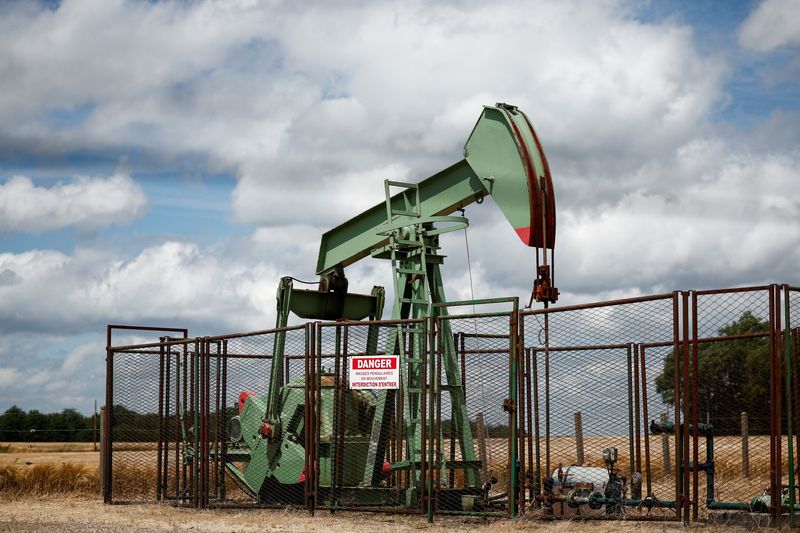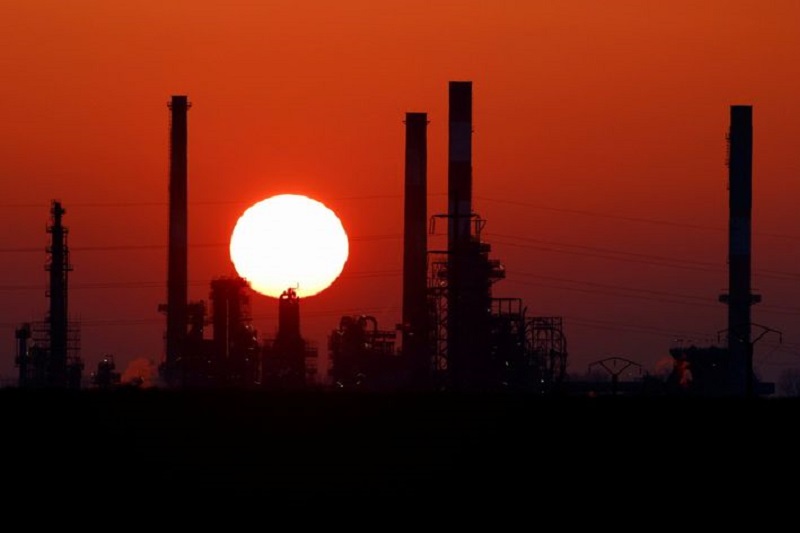By Arathy Somasekhar
HOUSTON (Reuters) -Oil prices edged higher on Wednesday, supported by big declines in oil and fuel inventories, but hovered near their lowest levels in six weeks on concerns about weak global demand.
Prices fell for three straight sessions due to declining US crude oil and fuel inventories, as well as rising oil supply risks from the Canadian wildfires.
September futures closed 70 cents, or 0.9%, higher at $81.71 a barrel. U.S. West Texas Intermediate crude rose 63 cents, or 0.8%, to $77.59 a barrel in September.
U.S. crude inventories fell by 3.7 million barrels last week, the Energy Information Administration said, compared with analysts’ expectations in a Reuters poll for a decline of 1.6 million barrels. [EIA/S]
U.S. gasoline inventories fell by 5.6 million barrels, compared with analysts’ expectations for a draw of 400,000 barrels. Distillate inventories, including diesel and oil, fell by 2.8 million barrels, compared with expectations for an increase of 250,000 barrels, EIA data showed.
“Demand is better than expected,” said Bob Yawger, director of energy futures at Mizuho in New York.
“As long as gasoline does well, that will support the rest of the market in the near term. Increased demand for distillates was the icing on the cake,” Yawger added.
However, the market remained wary of global summer demand. U.S. oil refiners are expected to report sharply lower second-quarter earnings than a year ago after a lethargic summer season weakened refining margins, energy analysts said.
Prices are under pressure from ceasefire talks between Israel and Hamas and ongoing concerns that the economic slowdown in China, the world’s largest crude oil importer, would weaken global oil demand.
Crude oil deliveries to India, the world’s third-largest oil importer and consumer, also fell in June to the lowest level since February, government data showed.
WTI lost 7% from the previous three sessions, while Brent fell almost 5%.
Rising prices and wildfires in Canada forced some producers to curtail production and threatened a large amount of supply.

Imperial Oil (NYSE:) said it has reduced non-essential staff at its Kearl oil sands site as a precaution.
Meanwhile, Russia’s Energy Ministry vowed to stick to crude oil quotas set by the OPEC+ group in July after production exceeded limits in June.


